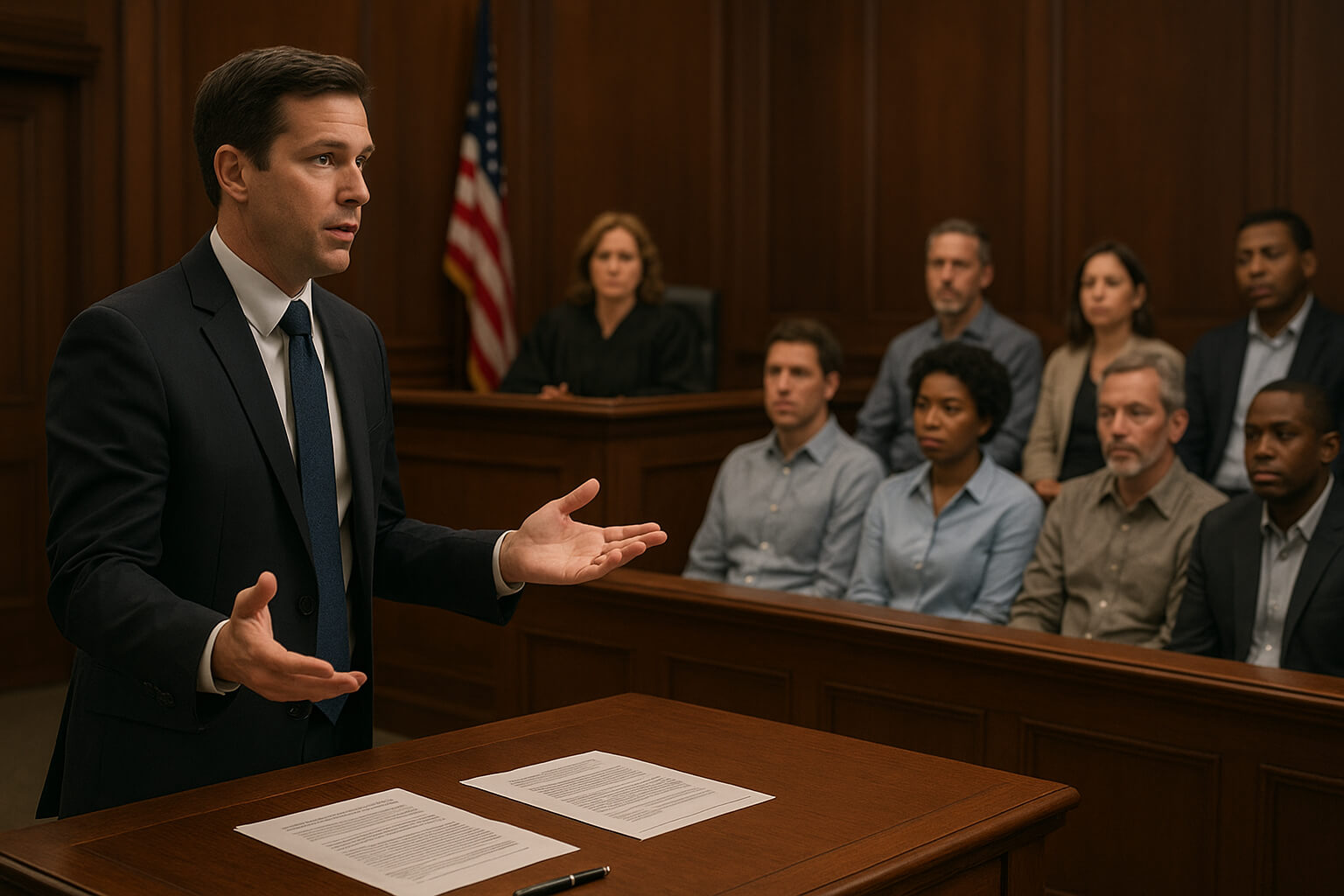September 17, 2025

Understanding each stage of a criminal case can help you make informed decisions, protect your rights, and reduce stress during an already difficult time. While every case is unique, most follow a general process—starting with an arrest and ending in either dismissal, sentencing, or appeal.
This guide breaks down each step and explains why experienced legal counsel is crucial at every phase.
A criminal case often begins with an arrest, either on the spot (based on probable cause) or following a warrant issued by a judge. After the arrest, the accused is taken to the police station for booking, which includes:
Learn more about your constitutional rights during arrest, including your right to remain silent and your right to legal counsel.
Within 24 to 48 hours, the arrested individual must appear before a judge. This initial appearance includes:
Why it matters: Early legal representation can impact bail outcomes and help preserve important defenses.
The arraignment is the formal hearing where the defendant:
Tip: Pleading guilty or no contest at this stage may waive your right to trial, so it's critical to have attorney guidance before entering any plea.
This is a critical stage where both sides exchange evidence ("discovery") and build their case. Your defense attorney will:
Review how legal costs can vary during this phase with guide to criminal defense fee structures.
More than 90% of criminal cases end in a plea bargain, where the prosecution and defense agree to a reduced charge or lighter sentence in exchange for a guilty plea.
Your defense attorney will assess:
Why it matters: Accepting a plea deal means giving up your right to a trial—this decision should never be made without informed legal advice.
If no agreement is reached, the case proceeds to trial. Trials may be decided by:
Each side presents opening statements, examines witnesses, introduces evidence, and makes closing arguments. The prosecution must prove guilt beyond a reasonable doubt.
Tip: Choosing a lawyer with real courtroom experience gives you a stronger chance of success.
Once the trial concludes:
Penalties can include fines, probation, mandatory programs, or incarceration.
If a legal error or constitutional violation occurred during the trial, your attorney may file an appeal. Appeals focus on:
Learn how these strategies work in high-stakes cases with case study on defending a client against federal drug trafficking charges.
Note: Appeals don’t re-try the case—they ask a higher court to review and correct the lower court’s decision.
A criminal charge can change the course of your life. At every stage—from arrest to verdict—your attorney plays a vital role by:
Choosing an experienced criminal defense lawyer isn’t just a smart move—it’s essential.
The criminal justice system can be intimidating, confusing, and unforgiving. But you don’t have to face it alone. With a knowledgeable attorney guiding you through each phase—from initial arrest through sentencing or appeal—you gain the best chance of protecting your freedom, your future, and your rights.